 There is something magical about being near big water. I first felt it when I was a child. My family would team up with my aunt, uncle, and cousins, and hit the road together for two weeks every summer. We usually ended up someplace near Tawas, Thunder Bay, or Alpena (all on Lake Huron); Luddington, Manistee, or Traverse City (all on Lake Michigan); or Mackinac Island, and Iron River (on Lake Superior). The goal was always big water, lots of time outside, and extremely limited city contact. My father usually rented one cabin, my uncle another; but always right next door, or a quick walk down a wooded path. This gave the kids (five of us until I was eight, six after that) someone other than siblings to play with, which usually reduced the arguments. The arrangement also gave the adults a foursome for cards – usually Bridge, Hearts, or Euchre. Each year held different memories, the strongest were rooted in sleeping arrangements or the water. This is where I got my love for knotty pine cabins. Some of my best childhood memories are associated with forests, water, and knotty pine cabins. Come to think of it, some of my best adult memories are, too. One year, we had matching cabins side-by-side, and for reasons I cannot explain today, we pretended my brother had lumbago, and the rest of us were medical geniuses; and the only cure was Capt’n Crunch cereal (don’t ask). That was the year my sister (four years older than me) swam out to the island, and me, my dad, and brother trolled behind in the rowboat to make sure she didn’t drown. It’s also the same year my brother was attacked by a ferocious gaggle of geese. I thought it just reward for putting snakes in my bed. Another year, we all shared a large house together. It was the year Nixon resigned. We were forced to listen to the press conference on the radio (my dad said it was history in the making). We kids slept in sleeping bags on folding camper’s cots that lined a big room with floor-to-ceiling windows on three sides. The room was covered in a multi-colored, corrugated roof. The thunderstorm that came through during our second night flashed bright colors and rumbled spectacular percussion throughout the space. That was one of my top ten favorite vacations ever… just because of that storm. As we grew older, we became a family of sailors, taking out small watercraft wherever we could, and learning that the water had “rules of the road,” and one should always keep land in sight. The best rule of thumb: if you can’t swim to it, don’t go out any farther because you never know when the wind might die, and you’ll be “three sheets to the wind and dead in the water.” Have you ever noticed; sailors have tremendously inventive, fun, and colorful language… that’s part of why I loved sailing so much. That, and the peace. Big water can be dangerous, but time near or on it can also be the calmest moments you’ll ever experience. I grew up with the understanding and belief that the world doesn’t get much better than time with a good book, a gentle breeze, rolling waves, and the soft flap of a sail as it catches a gust every now and then. And so, when I was in Muskegon for a few days recently, one of the goals was to spend as much time as I could near the big water of Lake Michigan. It’s been several years since I’ve walked those sands, felt those breezes, and inhaled that air… it felt good; like coming home to a childhood I thought was lost. Although I loved it, sailing Lake St. Clair just isn’t the same.  One thing I never got to do as a child was walk to the end of Pere Marquette’s boardwalk. So this time, I did. I’ve always been fascinated by lighthouses – especially those with Keepers. Still, automated lights are just as strong a beacon of imagination for me. Being so close, I had to visit. I was grateful an author friend, Ingar Rudholm, recommended a restaurant right on the beach, “The Deck.” It was perfect. Good food, warm breezes, and a band that was so loud, I didn’t feel guilty putting some distance between me and the throng out having a good time on a warm summer’s night. I didn’t realize how much I forgot until I stood at the end of the boardwalk in the shadow of the Light, feet splashed by the bold, beautiful, waves. I forgot how amazing big water is. I forgot how the wind teases your balance… tests your resolve… tussles your hair… and flutters through the thoughts inside your brain. I forgot how the warm sand plays between your fingertips when you pretend you’re an artist. It’s warm and soothing in that same way a kitten’s tongue feels when it licks your nose. I forgot how big water smells so uniquely different from smaller waters… like tears meeting with the afternoon breeze on the day you met your first puppy. I forgot how the sun kisses the horizon at night and convinces you the earth’s edge is right there. Even though it was a deception, it was soft and gentle. I forgot how with each degree the sun lilted closer to its goodbye, the sound of the waves reverberating against the beach changed half an octave, suspended in an almost silence – but not quite. It was like being reunited with a lover who promised they’d always be there after you left… and still was. It was like being reminded that nature doesn’t make mistakes, and maybe, just maybe, you belong, after all. As I sat on the sand, watching the sun exit stage left, I noticed a Catamaran moored on the beach. It was tethered to a post and anchored tight the way light aircraft are protected at small airports without hangars. Her hull and mainmast shimmered silver-grey and she had a dark blue tramp and boom. The echo of the water lapping against her hull called out to me… “I want to sail. Please, won’t you release me from these lines… Take away the anchor… Let me go with the wind!” Her voice was small, I’m sure no one else heard it. Still, I heard her. She was crying for the freedom and escape of the big water. I couldn’t help but feel my own broken heart yearning to sail the winds with her. Seeing her so filled with angst made me sad.  The memory of a little bit of wisdom I learned in high school came back to me with foghorn insistence… “A ship in a harbor is safe, but that’s not what ships were built for.” The sky became streaked with the gold hues of sunset, and I assured the little Cat that soon, her people would be back, and they would fly her across the waves with the careless abandon she so loved. She just needed to be patient. She scoffed then. And I felt that, too. I’ve never been good at waiting to spend time in the company of those I love, either. Waves, winds, or humans. As the night came to a close, and the air grew cooler, I was thankful that I’d remembered a sweatshirt, and also to take those few hours to be completely alone with the water. I remembered what I forgot. I reminded myself of those things that I’d lost sight of for a time. I enjoyed moving in slow motion, sitting alone, listening to the world without all its distractions. I will visit the big water more this year. There are lighthouses to visit, sands to play in, winds to embrace, and boats to comfort. And throughout the summer, I might just discover more things that I forgot.
0 Comments
 I’ve done a few interviews – radio programs, podcasts, newspaper interviews – over the past fifteen years. I love talking about books and my passion for the written word with anyone who is interested. Invariably, at some point, the same question arises… Why do you do all the stuff… virtual book festivals, community service anthologies, flash fiction contests, the podcast? As I spend this last week of January, preparing for the next virtual festival, I thought I’d take a little time and write about it. I’m pleasantly addicted to the written word. Growing up, my family was not religious. I think I can remember going to church half a dozen or so times before I was twelve, with my grandparents; and then when I was thirteen, with my mother for a little while. But let’s be clear, I did it so I could work in the nursery and read stories to the children, not so much to sit in the pews. When I did sit in the pews, my nose was in The Book, rather than paying attention to the rituals. I read it twice before I turned eighteen. Instead of church, my parents took me and my siblings to the local library on Sunday afternoons. It was expected that we would check out at least two books per week, read them, and return them the following Sunday. One of the best gifts my parents gave me was cultivating my love of literacy. For the record, my three siblings did not turn out to be adult readers. The thought of that befuddles me. Some of my most memorable “family time” was focused in the library. It was our weekly pilgrimage. In winter, we drove. But in summer, we climbed on our bikes and rode the three miles to that hallowed space. I can still remember being four years old, riding in the little seat on the back of my dad's bike - working feverishly not to let my toes fall in between the spokes. Once we got there, I was usually right up front on the carpet for story hour, soaking up all I could. Sometimes, I was the only child sitting there, waiting. But the librarians never disappointed. They read. I listened; and together, we traveled through time and had grand adventures. I insisted my mother sign me up for the summer reading program each year, until it was deemed, I was “too old.” I remember feeling hurt when I learned that I could no longer get the nifty little tracking chart and add stickers to it with each book I read… not to mention attending the party in August, to celebrate all those digested pages. As I grew older and could be trusted to make the bicycle journey without getting myself killed, I continued the practice, often making the trip a couple times a week (times were different then). There was never a penalty for taking out too many books (sometimes my eyes were bigger than my literary stomach). And, if I wasn’t able to read a book or two, I could return them… no questions asked, and no ridicule for the oversight. The pure freedom and joy in that – I was mesmerized. There was a safety and a comfort found inside books. When I was in seventh or eighth grade, a new recreation center was built just a half mile from my house. Along with the swimming pool, snack bar, ice arena, playground, and golf course, they built a library annex. Officially, it was called “The Little Library.” It was about the size of your average high school classroom… perhaps a bit bigger. Because of the limited space, they only shelved paperback books. I didn’t care. Books were books, it didn’t really matter what their covers looked like; three ring binders, staples, spiral bindings… I didn’t care, as long as they had words in them. An added treat was a bin filled with cassette tapes – books on tape; or as we referred to them back then, “Talking Books.” They were intended for adults with failing eyesight – but I loved them, especially at night, before falling asleep. It was like sitting on that carpet all over again, listening to people read stories to me. Literary ecstasy! Listening to stories at bedtime is still an indulgence I relish. The best part about this Little Library was that it was so close to my house – a mere eight minutes by bicycle – instead of the hour it usually took. And the bonus? It was directly across the street from the ice cream shop. Swimming, books, and ice cream; what could be better on a summer afternoon? With the advent of high school, I couldn’t get enough time with the written word. I was that kid with her nose in a book on the bus, while walking the halls for those seven minutes between class periods (no, I didn’t walk into walls or bump into people), and skipping Algebra only to spend that hour tucked in a back corner of the library where no one noticed me, reading or writing. (Not too long ago, I was seen standing in line waiting for my COVID vaccine, reading a book. I got some strange looks.) During high school summers, I asked my parents to give me topics. When I wasn’t doing summer stock theatre, I was at the library writing research papers. Yes, I was THAT weirdo. I miss the card catalogue. It was like a treasure hunt. I continued reading into my adult life just as voraciously – but not at all quickly. I savored the pages, I ingested them slowly, working to lose myself in the white space as I heard the voices, imagined the scenes, and felt all the emotions of a story. I learned later that among my friends, I was indeed a speedy reader, going through two or three in a week. I still read steadily throughout the year, but other pursuits like writing, book festivals, editing… you get it… keep me from reading as much as I’d like. I’m still swimming deep in the written word, I’m just doing it now more as an active participant rather than just an observer. Okay, there’s really no “just” about reading, but you get what I mean. Still, I have friends who read hundreds of books in a year, and I envy them. I raised my son with books and regular visits to the library, too. I’m pleased to report that now, in his thirties, he still enjoys reading and is a spectacular storyteller. I turn fifty-nine this year, and as I’m looking at the second half of my life, I can’t imagine what the first half would have been like without words, books, and libraries. My passion for those little squiggles on a page drives me toward sharing the wonderment I’ve found in literature with as many other people as possible. But I don’t just want people to have an “appreciation” for books – I want them to really get jazzed about them. Okay, maybe not as neurotic as I am about it, but close would be nice. The Indie Author community is tremendously vibrant. I think more people in the world should experience them the way I do. I’m sure there are wonderful writers in the Traditional publishing arena. Indeed, I know there are, I’ve read their books, met them, and gushed over their writing in person (making a complete fool of myself). But I live here, with Indies, and every day I’m getting to know these people and their stories. I’m a devoted fan to so many of them that I want to share them with readers who perhaps wouldn’t discover them otherwise. I also have an insatiable curiosity to meet more Indies and learn about their work. So, I host a podcast, “Indie Reads Aloud.” It’s a storytelling podcast where I introduce listeners to Indie Authors, and they read from their books. I do this to help authors gain more exposure, and to help give readers more alternatives when searching for new books to read. But really, it’s all very self-serving. Because the truth of the matter is, I’m still that six-year-old little girl who loves to listen to people read stories out loud. Instead of suppressing that childhood whimsy, I’m celebrating it. I spend time facilitating the creation of several short story Anthologies each year that serve charity. Why? Because I want to give back to the world the sense of amazement and adventure that it gave me when it gave me story. I can’t think of a better way to enrich a community than by giving them books filled with ideas to germinate in their brains; perhaps offering perspectives, cultures, and possibilities that they may not have considered on their own. I also do it for the authors. Discovering the courage to publish your work can be a daunting task. I am hopeful that if I repeat the earwig of crafting story and sending it out into the world, encouraging every timid author I encounter, then maybe more people will follow through on that dream with confidence. Yes, this is also a little self-serving, too. I love story. The more of them we flood into the world, the better, as far as I’m concerned. My goal is to die with a To-Be-Read Pile that I’ll never complete. I’m addicted to story, and completely unashamed. Finally, I host Virtual Book Festivals (and in-person Festivals pre-COVID, and perhaps again soon). Why? Because I’m committed to doing all I can to build the Indie Author Community. We have some spectacular people in our circles, and I feel that I should do all I can to help them further their careers. Any business person will tell you that networking is an important part of cultivating success. I heard someone once say, “If you want to become wealthy, hang out with people who have money and find out how they did it.” Whether there’s truth to that or not, I couldn’t tell you. Money has never been a focal point of my existence. But I do know that by spending time with other authors, I have learned more about my chosen preoccupation than any college course I sat through or book I’ve read (sacrilege, I know). The truth is that by enriching our network, we grow the possibility to gain exposure for our work, we learn tips and tricks about the “business of writing,” and – It’s Simply Fun. If I’m going to dedicate my life to something, to follow a passion that calls to me, it would be silly not to enjoy it, right? Yes, the Festivals also serve as another way for readers to discover books that perhaps they might have missed. Yes, it’s a way for authors to perhaps gain new fans and build their revenue streams. But primarily, I do it because I love meeting with authors, making friends with like-minded souls, learning from them, and filling my world with the energy that we all share for a common predilection. My not-so-secret wish is that other authors see the value in building our community, too. I feel like I have a responsibility to do all I can to support this community that has given so much to me. Most days I feel I could be doing more. So I try to do more. There you have it. I obsessed. I am unable to live comfortably without story, and so I am doing what I can to ensure that the written word doesn’t have an expiration date. If you’d like to join me in my quest, here are a few links you might check out: Resources, Including Bookshops, Author Websites, and Other Nifty Stuff http://www.dkpwriter.com/resources.html Pages Promotions Community Service Projects https://www.pagespromotions.com/community-service-projects.html#/ The Page Promotions 2023 Virtual Book Festival https://www.pagespromotions.com/2023-winter-virtual-festival.html#/ The Passionate Plotter Books & Mentoring Programs https://www.pagespromotions.com/writing-craft-mentoring.html#/ The Indie Reads Aloud Podcast http://www.dkpwriter.com/indie-reads-aloud-podcast.html My Books http://www.dkpwriter.com/the-books.html 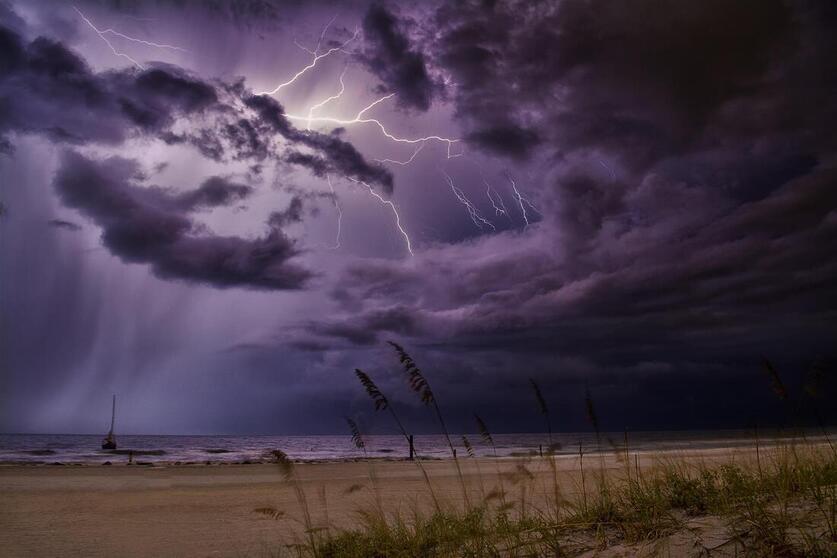 Sacred [sey-krid] adjective; regarded with reverence; secured against violation and infringement. Since I was about seven years old, I have considered what qualities are required to make a thing, thought, or practice “sacred”. When I was little, much to the frustration of the adults around me, I asked why sometimes there were words, things, and rituals that were so important as to be protected at the highest levels, and never disputed. The WHY has always been important to me. The question is one that I return to time and again. My grandparents taught me that for something to be sacred, it should be ordained by religion. Their view was that all those things that we could not entirely explain but were taught to accept with blind faith should be seen as sacred. For such a complex concept, that explanation seemed too restrictive. It left out a lot of things that, when I asked them, they couldn’t explain. Even then, I knew that if you couldn’t explain it, you couldn’t validate why it was sacred. My teachers brought the concept out of the church and into the classroom. They instructed that only the things that could be empirically proved had the potential to become sacred. They bolstered this view through the understanding of the universal impact on our society. They insisted that the laws that govern our world like gravity, time, and momentum, should be revered as sacred because they did not change, and without them, science, philosophy, and art would be lost to us. While all of that may be true, it still seemed to me that the scholars were missing the point. Sacred is a tremendously important word. There had to be more to it than that. What I finally arrived at was this: The notion of any one thing, thought, or practice being held as sacred is an extremely subjective, personal, individual determination. Each one of us must find those things that are sacred to us and infuse them into our lives in a way that best respects the meaning of the word. I decided that for a thing to be sacred, it needed to hold a space in my understanding that did not diminish its relevance or importance over time. It could evolve at its edges, while remaining true at its core. I came up with a list of ten concepts that seemed to fit these criteria… at least for me. I enjoyed a tremendously insightful conversation with a friend recently on this topic, and it drove me to dig deep in the boxes of my basement, scour my old notebooks, and find the list I generated all those years ago. In examining the list, I’ve discovered that even though my vocabulary has improved since I was seven, my base understanding of these ten things, and why I have always seen them as sacred, has not changed. I’m sharing this list here, not only for my friend, so that they might gain greater insight into who I am, but also for you, that you may use my list as a springboard to look inside yourself and figure out what’s sacred to you, and why. Just for the record, no, “Troth” wasn’t a word I knew at seven years old. I learned that one the first time my English teacher read Shakespeare aloud to the class, in sixth grade. But I thought is sounded like a word that described the concept of “Private Me”, so I’ve been using it ever since. As all these words are sacred to me, they are presented here with the intention that none are more sacred than the others… but alas, a list is a list.
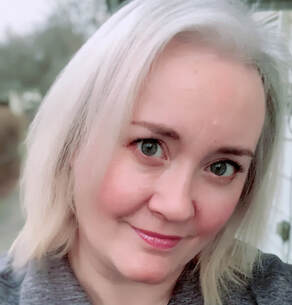 Yesterday, as I celebrated her birthday, and my honor of sharing another year of life with such a vibrant soul, I received a phone call telling me that my dear friend, Kate McNeil, had passed away. The world has lost a bright light of kindness and creativity. I am devastated. I cannot imagine what the world will be like without her bright smile, her snarky wit, and her empathetic heart. I cannot imagine what the world will be like without her gentle voice, her strong tender hugs that easily transferred the weight of my world onto her broad, compassionate shoulders. I cannot imagine what the world will be like without her ingenious storytelling, her effervescent commitment to help others, her sparkling eyes, and lyrical giggle. Kate was my literary sister, sanity saver, keeper of my secrets, and protector of my tears. She was the good swift kick in the butt I often needed. Always generous with her time, she was my story arc brainstorming buddy, my social media instructor, my cheerleader for every accomplishment, no matter how large or small. Kate never underestimated my work, encouraging me ever forward toward the next risk-taking, fear-breaking wall of opportunity. She lent me her relentless strength in moments when I couldn’t find my own with a joyful heart and a seemingly endless supply of kindness. She was simply, easily, genuinely nice. Kate was a spectacular author. She crafted wonderful books filled with adventure, strength, and snark. I will miss traveling through her imagination, following her characters as they discovered plots, fell in love, outwitted villains, created deep friendship bonds, and surprised with hidden talents. I will miss the devious smile when I asked about her connections to the Secret Service and hearing her gleeful reply; “I cannot confirm nor deny.” I take a small bit of comfort in knowing that whenever I miss her, I can still caress the pages and inhale the words she left behind. I know my dear friend Kate well. I know she is at peace, surrounded by the infinite love she gave so generously to others. And knowing her, she’s probably in a corner of creation somewhere, teaching someone something. Katherine “Kate” Amby Wallace McNeil Author, Teacher, Wife, Daughter, Sister, Friend July 13, 1979 – July 13, 2022  I love words. I love diving deep into sentence structures, vocabulary, and the rhythm of one paragraph, flowing after another, page after page. Words can be powerful and gentle. They can be uplifting, instructive, and revealing. A page filled with letters grants me a gift I can’t find anywhere else… intellectual and emotional freedom. Books are a judgment-free zone where I am allowed my own interpretation of the message and even the silent mispronunciation of names, places, and magic spells. Words allow me to choose what I see rather than someone else dictating my vision. When reading, I get to decide when to take a “commercial break.” I can slow down when the pages become overwhelming. I can speed up when situations become exciting. Without losing my place, I can inhale deeply and take a few minutes to collect my thoughts or contemplate an outcome. There are no rules about reading below, at, or above my “reading level” (whatever that means). Without recrimination, I can set a book down and walk away if it becomes too sad, too angry, or too dull. My lexicon is so much a part of who I am that I actually dream in words. It’s odd, I know. Instead of seeing the dreamscape in images, like the rest of the “normal” people of the world, my dreams appear in words. I read them as they are printed on a page or sometimes scrolling on a blank screen. We dream to interpret experiences and work out the stress of our waking lives. Words have always been my safe place, so it makes sense that I dream in words. I’ve never questioned it. When I was a child, I escaped into a universe of books. Sunday afternoons, my family visited the library. It was a requirement to read at least one book per week. I often read four or five. When I was “caught” reading by my parents or a teacher, they were instantly distracted from any wrong I may have done and instead praised me for my “good choice.” At school, my teachers rewarded me for reading with free pizza coupons. At home, my parents encouraged reading. During long trips, I read in the car to avoid interacting with my older siblings. I was never reprimanded for too much time spent loitering in the library, bookshop, or even in front of the magazine rack at the grocery store. A love of reading gave me time without the intolerance of my parent’s “to do” list. Reading brought me peace. I realized early on that writing was the thing that called to my soul. I started writing in second grade. I told stories to my friends on the playground and later put them on paper. I coveted silent reading time in class. I spent my summer vacation eagerly, willingly writing research papers at the library. I saw the card catalogue as a big treasure hunt, and Roget’s Thesaurus was the map. I wrote papers for friends in high school, not only to help them pass their classes but so that I could have the fun of exploring their ideas with my words. Yes, I was that kid. More than anything else in this world, books are where I find my home. Books are how I experience the texture of life. This is why I chose to become an editor. An editor’s duty is to help writers wade through the frustrating bits. We point out the plot holes that need to be filled. We manage timelines and strengthen a writer’s talent to connect readers to characters with subtle dignity. It is our obligation to help maintain the author’s authentic voice while enticing the turn of each page with an appropriate pace. We maintain continuity of details and mask the effort of creation. Simply put, an editor makes the process of refining a book less daunting. I help writers whistle while they work, frolicking through the task of polishing the grammar and dusting away the cobwebs of a story to reveal its pure brilliance. And I love it. I love conspiring with an author to flesh out their ideas. I love watching word choices change the meaning of a group of sentences as they march off to serve the hero or teach a lesson. I love the nourishment punctuation offers a story while helping a victim scream, a lover swoon, and a villain rage against a truth they would rather ignore. I love diving into symbolism as it serves a subplot. I love the anticipation of setting up a red herring that forces the reader to go back over the last six pages with the intoxication of reading them for the first time. There is nothing more satisfying to me than helping an author sculpt their thoughts in a way that is surprising, reaffirming, enchanting, or beguiling to a reader. The day is not wasted if I can offer my perspective, skills, and experience to help writers improve their stories. The joy of becoming an author is not found in the final book on the shelf… although that is a happy moment worthy of celebration. The more profound pleasure lies in the creation of it. The fascination is in finding just the right word or turn of phrase. An adrenaline rush comes to the author when bringing a story to the pinnacle of tension and then teasing the reader with another twist. There is tremendous satisfaction in forcing a reader to wait until the end of a story to reveal a suspect, savor or suffer the commitment of love, or dangle a cliffhanger that tempts the next book in a series. Editors protect that rush. My love for the written word, and my belief that all words, whether I agree with them or not, are sacred, led me to become a book editor. It takes a lot of courage to put our thoughts on the page. A vulnerability exists in writing that is rare and precious. I strive to help others who find comfort in words realize their dream of publication. I’ve worked with authors on all levels of experience, from novice to veteran. Mentoring an author as they find their voice and craft their stories is an exercise in wonderment. I’m honored that so many have trusted their work to my influence. I can’t imagine spending the hours of my life doing anything else. I spend a lot of time with people who love books, authors, and readers. In almost every case, the conversations are positive, extolling the virtues of the written word and expressing our mutual love of story. However, I’ve recently encountered something new. Okay, maybe it’s not new, but these conversations seem more prevalent. It appears that some “book people” are dividing into separate camps, either validating or decrying a particular reading method. Some readers claim that “real books” are the only proper path to literacy. They lust after the “real” aroma of the ink and the feel of the pages in their hands. Opponents remind of the weight and fragility of paper books. Some vehemently decry E-books. They claim that pixels on a screen are only shadows of actual books. They say reading this way is cheating the reader out of a valid reading experience. Enthusiasts of E-books claim that the ease of accessibility makes them more infatuating than paper. Still, others argue that listening to Audiobooks isn’t really reading at all. At the same time, Audiobook devotees remind that they’d never read a thing if not for the multi-tasking merits of Audiobooks. Encountering these comments has made me consider my own path to my reading practice and why I read the way I do. 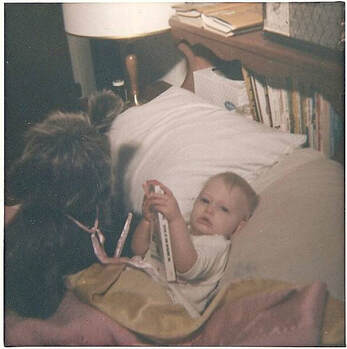 I have a photograph of myself, snuggled in bed with a book and a stuffed dog. I was about fifteen months old when my mother took the photo. I learned the magic of story at a very young age. It was one of the best gifts my parents gave me. I memorized the books my family read to me long before I understood how the writing code could be cracked. Story was my constant companion. Even before I could read, I always had a book nearby. They were my favorite toys. As soon as I could talk, I’m told, I began creating my own tiny adventures to share with my siblings. At four years old, I lost the hearing in my left ear due to an illness. Through the frustrating years of speech therapy and dissecting body language to help me interpret the mumbles, I learned to navigate the world differently than other kids. Although I couldn’t perceive music or language the way everyone else could, the written word offered the promise of possibility. Each piece of cardboard held between its two flaps vibrant worlds filled with remarkable people and animals who could talk to me… even though I couldn’t see their lips moving. As I grew, words became my sanctuary in moments of sadness, anger, and joy. I discovered the opportunity of a level playing field where my hearing loss didn’t matter. Inside the world of pages, my friends and I were equal. Life exploded with color and movement, and none of it relied on the precision of sound. It was spectacular. Elementary school was joyful for me. While other kids had to be coaxed into reading with the promise of free pizza coupons, the only motivation I needed was the librarian’s assurance that a book would be “a fun read.” As I grew older, I went to sleepovers at friends’ houses and then to “sleep away” camp. I rediscovered the wonder of storytelling without the pages. We huddled in blanket forts and sat around campfires sharing adventures. We engaged our imaginations with the “what if” game, retelling old stories with our own twists or making up brand new ones. At night, I nestled under my blankets with a flashlight and wrote down all that I could remember. I regret that I’ve lost those pages to time… but I’m grateful that I paid attention. For it was in those early years that my writing journey began. In middle school, I was the kid with her nose in a book while walking down the hall from one class to the next (no, I never bumped into anyone). During my lunch hour, I read while others were gossiping about young teenage things. I was too busy to care, as I went on adventures with Alice In Wonderland, Charlie and The Chocolate Factory, and The Brothers Grimm. I traveled with National Geographic and tried to understand adult things with U.S. News & World Report. The library became my favorite “Fortress of Solitude,” and I spent hours digging through the endless rows of books. I was the odd kid who saw the card catalogue as clues to a wondrous treasure hunt. During summer vacation, I asked my parents to give me a topic, and I spent hours at the library doing research for papers that would never be graded. Writing them filled my time. Yes, I was that kid. Of course, I also spent hours riding my bike with my friends… we nearly always ended up at the library. And, sure, I also went to the city swimming pool with my friends on hot summer afternoons, but I almost always took along a book. After all, what else was there to do during those fifteen minutes of every hour designated as “adult-only swim”? In high school, I encountered an amazing transformation of the written word in the form of the theatre. Stage plays are a brand of storytelling magic unique to this world. It takes wizards and witches to make those words come alive… more so, I believed (and still do) than in film and television, precisely because the audience's energy changes the words at every performance. I fell hard into the scripts of William Shakespeare, Anne Frank, Tennessee Williams, Neil Simon, and John Steinbeck. I was provoked by the differences between the words written on the page versus those acted upon the stage… and I rejoiced in the similarities. I discovered a new way to read and write, a new way to become gloriously overwhelmed by story. When my son was born, I revived the joy of reading aloud, for him and for me. For each book I bought for my son at the Scholastic Book Fair, I also purchased the accompanying “book on tape.” Audiobooks became our entertainment in the car on long trips and his reward for going to bed on time (staying up “late” to listen to just one more story). Like a story presented on the stage, there is a unique cadence to a book shared only through the voice. Memory triggers of childhood emotion and understanding are reawakened when the vibration of the voice plays upon the air without the aid of visual interpretation or even the letters from which it was born. Storytellers add their own expressions to the tale. Each reader will offer something new to the listener, even if the words have been read or heard a thousand times before. Think of the difference between hearing Neil Gaiman reading his work versus some other voice reading Neil Gaiman’s work. The story is different simply because the reader becomes a part of the story they are telling. It cannot be avoided, nor should it be. Each story will reach a listener differently, depending on the voice who delivers it. Now that my son has grown and I’m enjoying the second half of my lifetime, I’m still enthused by books and writing. I honor the written word as sacred, no matter what form it comes in. Whether a paper book, magazine, Audiobook, podcast, or E-book… all of it is valid to me. Each has its place within the delivery of story, and each has its own moment of convenience. I still read paper books and magazines curled up with the dogs on the couch. I also love audiobooks, E-books, and podcasts to fill my time when doing chores around the house, while traveling, or at nighttime, just before sleep. None is more precious to me than the other. None is less important. I don’t judge another reader for their choices in material or delivery… as long as people read, that’s enough for me. So I say, read. Take in every word… whether printed, pixeled, or spoken. Immerse yourself in books and in the tradition of storytelling. Which way is the best way to do that? I don’t think it matters. Just share the wonderment of reading with everyone you encounter. Honoring the written word, no matter how you find it, will enhance your experience of life and theirs. That much I know to be true. 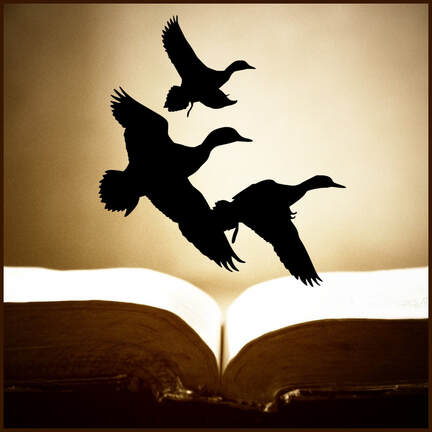 Migrating my way through the world as a writer has never been hard for me. From my duckling days, I knew that writing stories was what I was supposed to do. But to say that it wasn’t work… well, that would be a deception of pterodactyl proportions. I began as a tiny, timid vocabulary junkie. I worked hard to shake the gooey red pen edits from every paper I’d ever written in high school and college, believing that if I just put in enough effort, I’d figure out what direction I was supposed to go next. I was told that eventually, after I learned all the rules, I’d be able to break them and find my own way. This was not tremendously helpful advice, but it was inspiring. So, with the encouragement of my mentors, I pushed off the shell fragments of a newly hatched storyteller. I had a lot of enthusiasm in the beginning. But enthusiasm alone isn’t enough. There is a natural process to becoming a novelist, and to deny the challenges only makes the turbulence more intense. As most writers do, I began stumbling on wobbly legs as I learned to balance story, structure, trope, and character. Then, in a little while, I became a bit stronger. The downy fluff of purple prose began to cover my boney story skeletons, and I began to enthusiastically peck my way through the metaphors. Over time, I started to learn which seeds of discontent will fuel my characters toward story arcs that might captivate a reader’s interest. This was a long and arduous process. Too long. Sometimes, it still is. I scratched my way over paths lined with nuggets of inspiration and kernels of distress. Not every sentence lends itself well to a story. From time to time, I needed to kick the persnickety ones aside and hope they would appear useful in my next draft. Sometimes it worked, sometimes it didn’t. But I continued to work at it, testing and retesting every bend of wing until I felt like maybe I had something worth reading. I emerged from my writing nest with material that made me look a little bit more like a swan and a bit less like an ugly duckling. World building made more sense and characters fleshed out more like real people than paper cut-outs. Of course, I still had lots of spikes of “Oh My Gosh! What was I thinking?” moments, but that’s to be expected. As any new flyer will tell you, there will be a few false starts when listening to instinct. Not every duck does it right the first time; just ask Ping. I began to test the waters of critique by sharing bits and pieces of my stories with other writers. I submitted pieces on spec to newspapers, literary magazines, and whoever had a newsletter looking for content. It’s a strange thing, to fly with confidence through your journey and then open yourself up to a course correction. I found it difficult to know what praise to listen to and what admonishment to ignore. Finally, I decided that imitating the authors who traveled successfully along a similar flight path I intended to take made the most sense. So, I followed them through their writing, learning as best I could by their example. I still do. I took classes, workshops, and mentoring sessions with other authors, hanging on their words of experience because, of course, they already knew how to fly. Sometimes, I was cheered for my tenacity and creativity. Other times, I was scorned for my inability to meet the expectations of more experienced writers. I did my best to let the negative comments roll off my back and realigned myself, wings tucked neatly at my side, diving deeper into my craft. As my writing practice grew stronger, I began to shift my understanding of the thermodynamics of storytelling. I stretched my story and character arcs, reaching for higher altitudes, taking bigger risks in subplots, and the ideas of genre mixing and bending. There were times when what I wrote was simply outrageous and ridiculous. Other times, it was just bad. Sometimes it still is. I think that's necessary. Through that daily practice of allowing whatever floated into my sky to make it to my page, I taught myself patience. I took the time to devise new ways to make faster dives into tension and gentler glides through romance. But even as I was plotting a new flight path toward what I was certain would be literary success, submissions were returned to me, mocking my aspirations and delivering gut-wrenching blows of rejection, time and again. But sometimes not. Sometimes, my work was welcomed, praised, and published for the world to read. At last, I found my nest within a supportive community of Indies. I became comfortable inside a flock of readers who recognize and appreciate that I’ve outgrown my fluff. Now, I have more beautiful transitions and dialogue that lay together, drawing readers in to touch the delicate silk plumage of my stories. Okay, perhaps I’m not yet perfectly fluff-less, but I’m getting better at it. I practice flying in and out of story every day and trust those just as committed as me to occasionally take point and lead the way across the mid-day sky. The euphoria of finding my place among literary clouds didn’t last, though. Too soon, I was forced to begin again, traveling to another community of Indies, to share my work with readers who haven’t yet discovered me. I'm guessing that the pang of that risk will never get any easier. I suffer tremendous anxiety while traveling abroad. When I began this migration from writer to author, no one told me how exhausting it would be. They didn’t mention how challenging it would be to believe in myself, in my work, and fight off the vultures of imposter syndrome, simply to keep my stories alive. I thought that the actual writing would be the hard part of this journey, not the rest of it. But I refuse to give up. I suffer through the change in seasons year after year, migrating toward new sunny shelf space, with new readers and new opinions of my work. I push through the doubt and frustration because I believe in the strength of story and the importance of the journey of creation. I continue to take the risk in relocation, in both genre and audience, to fulfill that instinctive call from my creative nature. But, for odd ducks like me, ignoring the quiet voice that pushes me to repeat my flight patterns across the literary landscape, year after year, can be difficult. As difficult as it is… I would rather fly through the anguish of growth than become grounded by the stagnation of the denial of story.  The process of story creation can be explained as a sphere of creation. It is a process where ideas form and are passed from imagination to hand and back again with relentless attention until the story is complete. Then we pass it along to the reader with the hope we’ve entertained them for a short time. When we begin writing, our story sphere begins like a ball of clay. It’s lumpy and malformed. Sometimes, it doesn’t even look round. Often it starts out egg-shaped or conical more than spherical. Small protrusions may develop with the slight sculpturing movement of just a few fingers. These may round out into something that blends with the rest of the story, or they may fall away entirely. It is realistic to understand that not everything that is created is used well at first glance. If small pieces fall away, we allow them to rest on the floor next to the turntable. But we never abandon them. Instead, we pick them up from time to time, tucking them away in a small box for later use. Perhaps they will fit better into the next story sphere we create. One never knows how small pieces of one sculpture may enhance another. 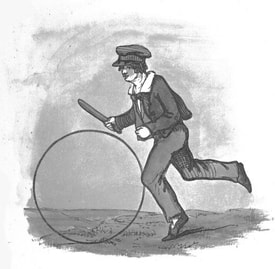 After completely forming our sphere of story, we narrow its profile and scoop out the stagnant middle. This makes it travel more easily from one plot twist to the next. As with a chase wheel, we poke at it, prod at it, and keep nudging it along on its path toward wonderment. We keep the momentum going, else it will crash and fall flat. As everyone knows, it’s quite tricky to get a wheel spinning again once it’s gone flat. However, momentum doesn’t always equate to speed. Sometimes it just means moving the story onward with tenacity. We are careful to pace ourselves so as not to tire too quickly or slag along without interest. We may craft our story slower up hills, faster down hills, and we rest, taking the pace more gently in between. Once we find our rhythm, we relax into the journey, flowing more easily with the uneven patches of the path. We rejoice in the distance we’ve come, and with good reason. It’s not a simple thing, keeping a story sphere moving forward. It requires a strength many don’t realize they have until The End stares back at them from a stack of paper. After measuring out the distance in words, lines, paragraphs, and pages, we celebrate a bit, resting with our achievements under the shade of respite provided by a first draft well written.  When we feel confident in the journey we’ve traveled and the comfortable completion of our story sphere, we hand it off to editors, proofreaders, and beta readers. The courage required to do this is unrivaled by even the greatest of superheroes. These kind-hearted souls, our mentors of modification, hold our story gently, ascribing the proper reverence to an endeavor crafted with equal parts love and imagination. Then, as they would a Magic 8 Ball, they ask questions, timidly at first, turning our story over in their hands… “What if?” The answer returns, “Very doubtful.” They make notes in the margins. Then, with more confidence this time, they ask, “Can this be believed?” The answer returns, “You may rely on it.” A sigh of relief is released into the air. It was a breath you didn’t realize you were holding. More notes, more questions, like riding a teeter-totter of story maturity, this tribe of dedicated story souls examines the work for areas of improvement and excellence with equal consideration. The process lingers as we patiently wait, trusting the sandpaper and polish of literary opinions. Finally, the last question is asked, “Will this end well?” The answer returns, “Don’t count on it.” Scribbles appear in underlined crimson or capitalized cobalt across our pages, requiring us to dig deeper, uncover more, share secrets without giving away too much. We retreat to our desk, taking this valuable insight with us. We concentrate on the refinement, repeating the steps of sculpture, pacing, and momentum until our pages are returned free from questions, scribbles, and requests for more enhancement.  At last, when our story sphere meets the expectations of quality, we enclose it delicately, like a snow globe, with a cover of protection, and send it to rest on the shelves of the world’s readers. Each, in turn, cradles it gently in their hands, turning it this way and that, watching how each flake of detail lands on the scenes inside. Each reader discovers a new perspective of the story, as they enjoy our gift from a fresh angle. Some are captivated with character, some with the sequence of plot. Others find themselves mesmerized by the dance of pacing or the music of dialogue that wraps around the story sphere, binding it together until the very end. When at last, the gentle snowflakes of the story have settled upon the foundation of the last scene, each reader embraces a message distinctive to them. Each reader’s gentle perspective of life, love, and imagination meld with what the writer provides to create art unique to their experience. This is as it should be, for art is preciously different for each admirer. For any who take the time to get to know us, they will find that Community Service work is extremely important to Drake (my muse) and me. My middle grade book, “The Griffin of Greed”, is based on this one idea that doing acts of community service, regularly, far outweighs the collection of material “stuff” or wealth. Wealth is simply a tool to help others, and stuff, well, it just means you’ve got more to dust. I’m not advocating taking a vow of poverty, or retooling to a minimalistic lifestyle. What I am advocating is the concept of emotional “tithing” in one way or another, as you walk through your daily life.
I admit freely that I’m not a wizard at volunteering. I know I could do much more. I’m a highly sensitive and empathetic person, and because of that, sometimes, volunteering in person can be emotionally and physically draining for me. My heart breaks easily, and it takes me longer than most to recover. I’ve donated time to animal shelters, children’s groups, senior centers, and even to cancer patients receiving chemotherapy. Afterward, I found it difficult to re-center myself and give to those who depended on me. So, I had to find another way to serve my community yet protect myself from the pull on my personal resources, which threatened my energy reserves that are devoted to my family and close friends. This is when I came up with the idea to serve from a distance. To use what I do well, and what I know others do well, to make a difference without depleting my emotional and energetic resources. Enter the community service anthology. Collections of poems, stories, and essays donated by writers from everywhere imaginable, focused on serving others. Yes, BOOKS. This is one of the main focuses that drives the work of my company, Pages Promotions. We believe a more harmonious and supportive society begins with literacy. We believe that a successful life begins with, and is enhanced by, the written word. We believe that not everyone is able or inclined to pick up trash by the side of the road or give blood or donate financially in order to contribute to the well-being of their community. We know there must be a positive alternative. We believe one alternative is the Power of The Pen! To support the needs of various charities, and to give writers a place to share their talent and creativity, we have created a Community Service Anthology Project Program. Two or three times per year, we offer enticing prompts that, when multiple authors contribute, results in a stunning book, created from our combined creative energies. Writers of every age, stage, and (nearly) every genre are welcome to submit! We offer novice and experienced writers alike, the opportunity to join together to create a force to be reckoned with... shared experience through the written word. Student contributors are offered community service certificates to help them achieve their graduation requirements while investigating the potential of their imagination. One of the things that gives the pursuit of writing meaning is the impact our words have on the lives of others. What we write, whether real or imagined, can, and often does, spark tremendous connectivity with readers. Words give others permission to feel, learn, and understand points of view or concepts that perhaps they would not have encountered, had they not picked up a book. Works of charity, we believe, are essential to the empathetic, evolutionary path humanity must travel if it is going to sustain and prevail throughout the next seven generations, and beyond. Without the goal of improving literacy standards the world over, our society is doomed to fail. An illiterate population hinders every aspect of a country's development... it's economy, agriculture, industry and manufacturing, arts, sciences, technology, and most importantly, governing. A society that lacks basic literacy skills is threatened by terrorists, despots, and, most tragically, apathy. To meet this goal, we have two projects currently open for submissions. The first is a “By The Seat Of Our Pants” novel titled, “Chaos”. This is a collaborative writing project that allows authors to work together to complete one full novel. Imagine a gaggle of authors, selected in random order, each writing a single chapter of a continuing story. No one knows all the characters involved, how the story will tangle, or how it will end. We are currently in the middle of writing the first edition of this series, “Madness”, and we’re having a lot of fun with it! The proceeds from sales of this book will benefit The World Literacy Foundation and their mission to grow individuals and communities through the written word. For writers who are interested in joining the project, they can visit our website to sign up to participate. The sign up deadline is January 30, 2022, and we’ll hold an organizational meeting via Zoom on February 4, 2022 to discuss the project in detail, take questions, and select the writing order. The second of our community service projects currently open for submissions is a book called “Rainy Day Love”. This is a collection of short stories, poems, and anecdotal essays written inside the theme of “Love”, and based on the following prompt: "A gift is received from an anonymous someone. The note enclosed reads, ‘For A Rainy Day.’" Proceeds from sales of this book will support The Hailey Sue Foundation. This fabulous organization works to uplift the community with the vision of a young woman who believed in kindness above all else. They offer special events, volunteer programs, scholarship programs, and community outreach with service as their passion, following the legacy of a young woman who loved without limits. The submission deadline for this project is February 28, 2022. All the details are available for interested writers on our website. We have also published two other books, “Simple Things”, a collection of poems and essays of isolated gratitude, written in the time of COVID; and “Monster Hunter Intern”, a collection of flash fiction short stories. Both of these books are available on Amazon, and the proceeds serve The World Literacy Foundation. We also have a third collection of flash fiction titled, “The Portrait of Herbert Losh” which is in production for an expected release date of February 15, 2022. Proceeds from this book will also serve The World Literacy Foundation. If, like Drake and me, you believe that community service and literacy are equally important in their power to move life forward, then I hope you will consider taking a few minutes to become involved in one of these projects. The words you share could have tremendous impact on another’s soul… and your own. 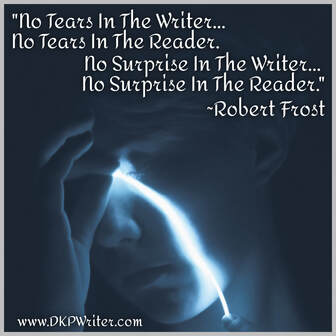 I've been working on the new edition of my romance novel, A Tryst of Fate, lately. I'm tightening the prose, reformatting the interior, adding to scenes, catching the typos, and designing a new cover. As I’ve done with the others, I’m republishing the old work, under my Pages Promotions imprint… for legacy’s sake, and legal control. Writing is a business, after all, and these things must be considered. As I was working yesterday, I was caught quite by surprise with the strong emotion of one particular chapter... and then a second. Different emotions, both were equally powerful. I think it’s an interesting thing, going back through my work from several years ago. This book was initially published in 2016, so it’s been five years since I’ve actually read the story in it's entirety. Once I finish a book and release it into the wild, I rarely go back to reread it, as a reader might. Usually, I’m focused on the marketing plan, and writing next project. I don’t usually stand back and stare at my work, the way a painter might. Of course, I remember the story, the characters, the plot progression, where the twists are introduced, and how they are resolved… but I forgot about the emotions. I forgot that when I wrote this book, I was drawing on the memories of personal experiences and moments in time… my time. I included many of my own wishes, hopes, dreams, pieces of the people I knew, and the reality of life as I understood it then. I forgot just how powerful it can be when I use those fragments of my own life in my work. Certainly, I do that with every project I write. The book I’m working on now, for instance, which I started in November (my NaNoWriMo project) has tremendous emotion, favorite places, tinges of people I know, and strong memories…but… As an author, when I’m in the middle of creation, I’m living fully in that moment. I don’t always know, cognitively, where I come up with my ideas, or how I fashion my characters. Even as a Passionate Plotter, I can’t always be certain how a particular feeling or movement will show up in my work. Most of the details, I leave up to Drake, and simply allow his intuition to emerge on the page. I try not to interfere too much with that stuff. In several cases, I’ve looked back on my work during the polish phase, and found myself asking, “When did I write that?” Knowing full well, it was the Duck’s intervention, and I had very little to do with it. Then, through the editing, I’m disconnected, looking more for mistakes and making corrections… dissecting it piece by piece, ignoring the forest for the trees. I put a microscope on my work, and fine tune every nuance. I detach. It’s important work. It needs to be done this way, to connect the pieces, and tie up the ends. Continuity conflicts can only be caught in this micro examination of the work, because my brain is so good at mushing everything together the way my teachers taught me to read, filling in the holes automatically. So, I touch through the leaves, one by one, forgetting how majestic the forest can be, when taken acre by acre. Through this process, I sometimes forget the impact my work can have on the reader. Yes, I want to provide them with a great story, an afternoon, or perhaps several afternoons, of wonderment and escape into our imagination, mine and the Duck’s. And yet, I think, sometimes, I forget to revisit that space myself. I’m often so concerned with making sure it’s done right… I forget how right it already is. So, if you find that my next books take a bit longer to release than is “expected” it is because I’m allowing myself to transform back into a reader first. I want to truly absorb my work’s affect to be sure it aligns with my work’s intent. If the story stirs questions, emotions, surprise, and wonder in me… that’s when I know it’ll be ready for readers… and the Duck can move on to the next project. Although, in truth, I have zero control over the little quacker, and that’s not such a bad thing, either. For those who might be wondering… the new edition of A Tryst of Fate should be released by month’s end. I'll post something on social media, when it's available. |
WelcomeYou'll find some interesting stuff here... some Op Eds, some Information, Book Reviews, and More. Poke around the categories and see what ruffles your feathers... in a good way! Archives
July 2024
Categories
All
|












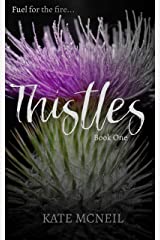
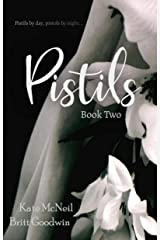
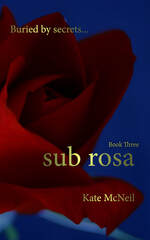
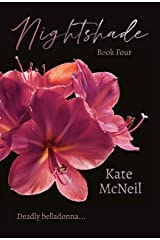
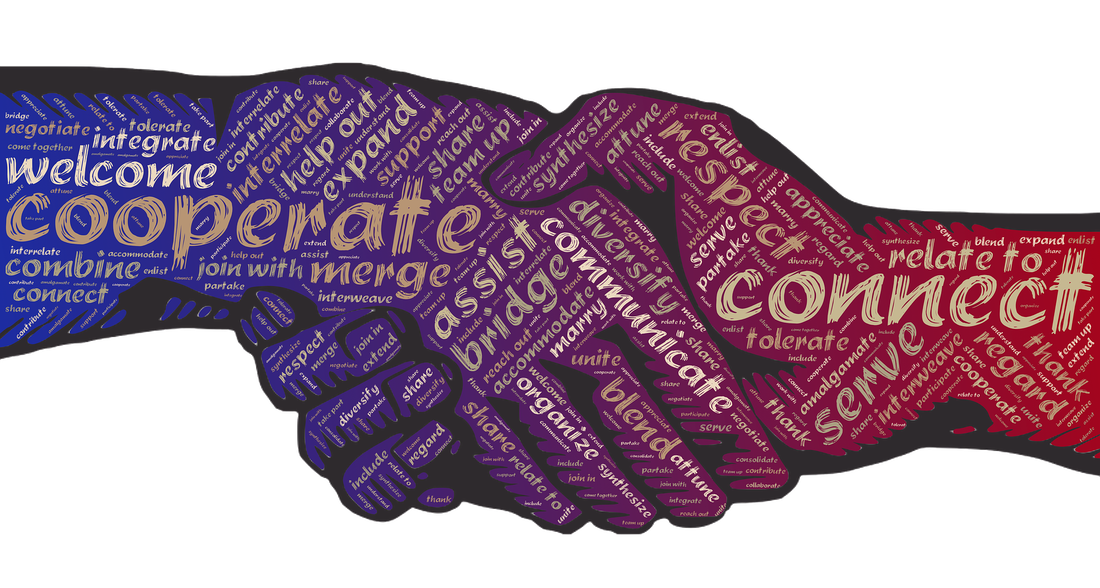
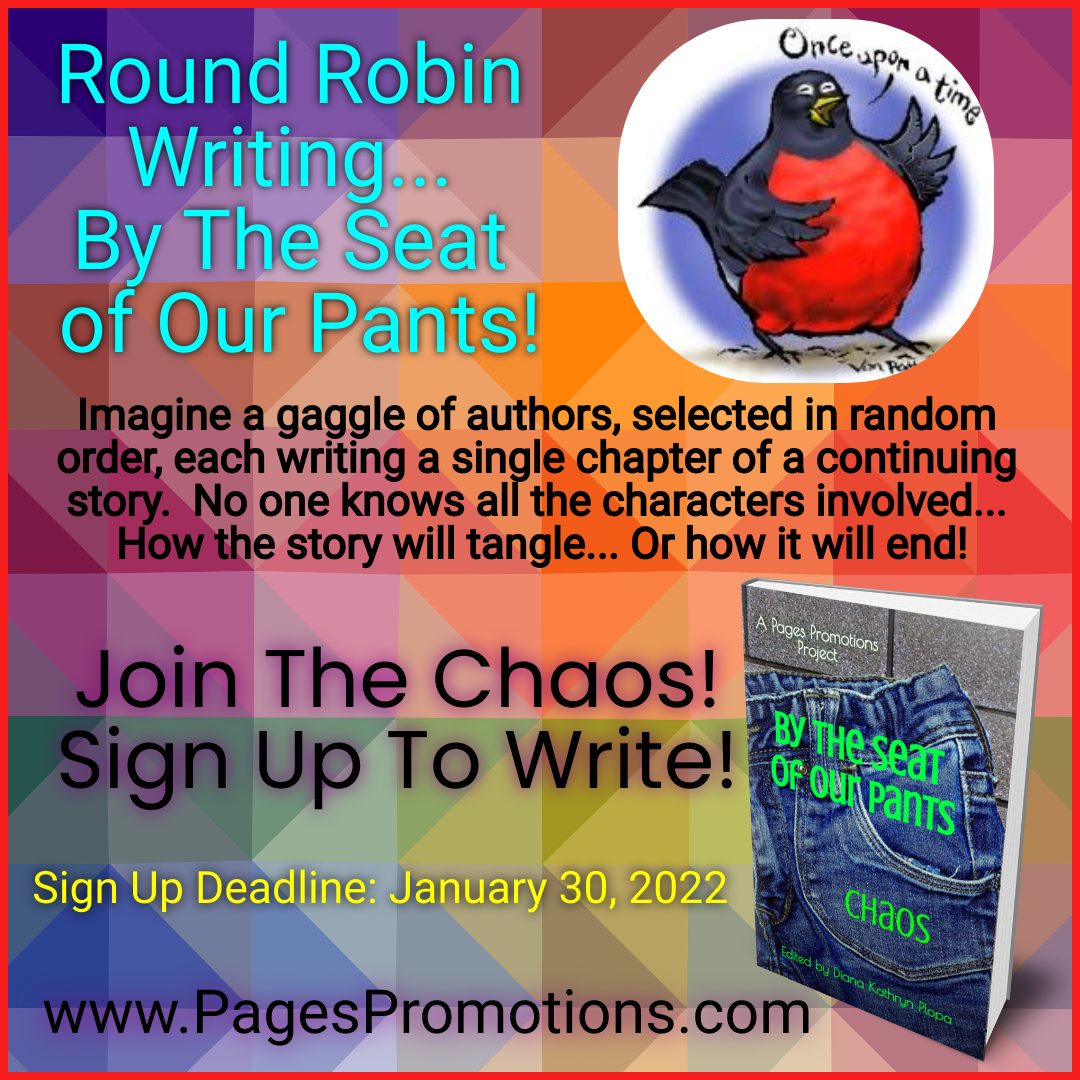
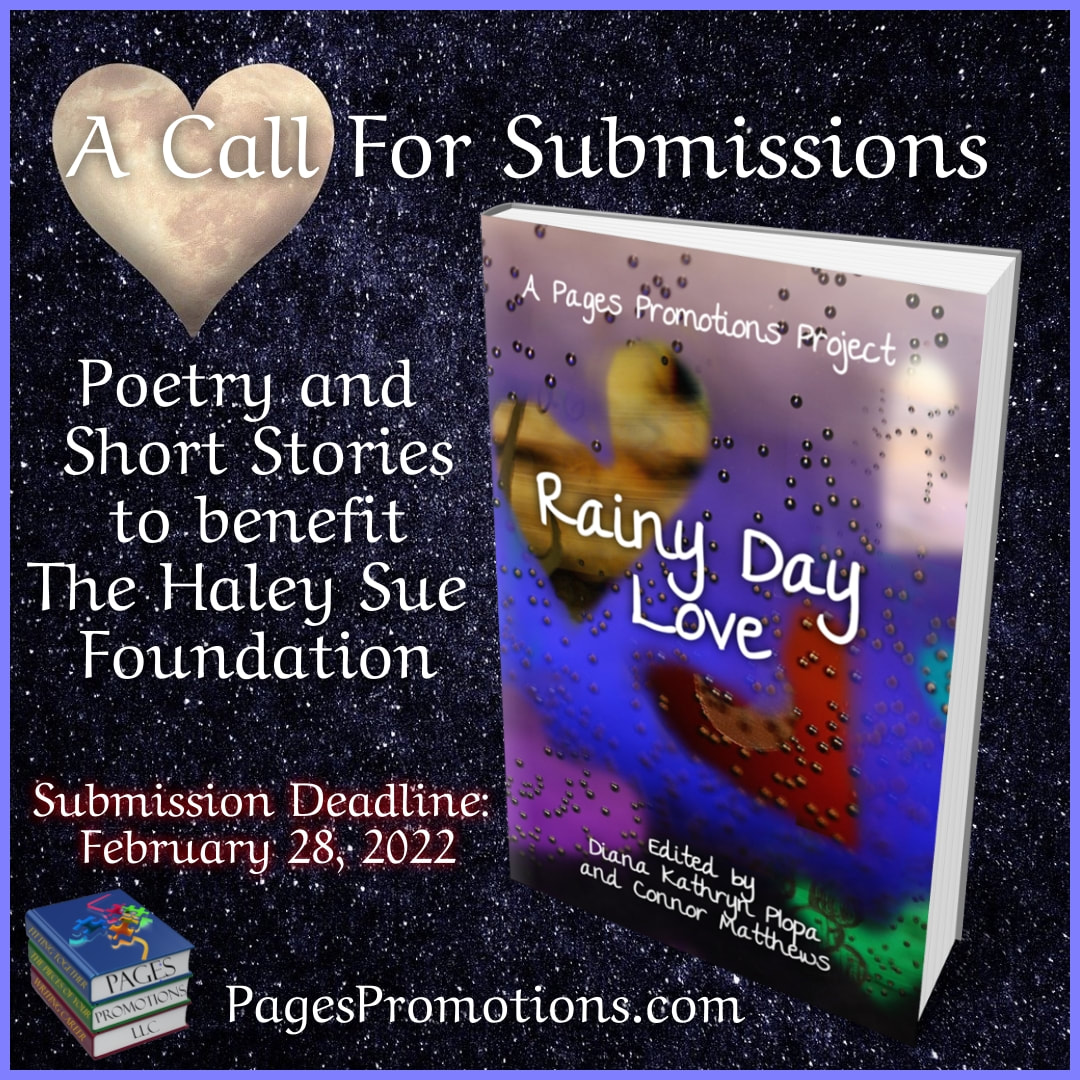
 RSS Feed
RSS Feed